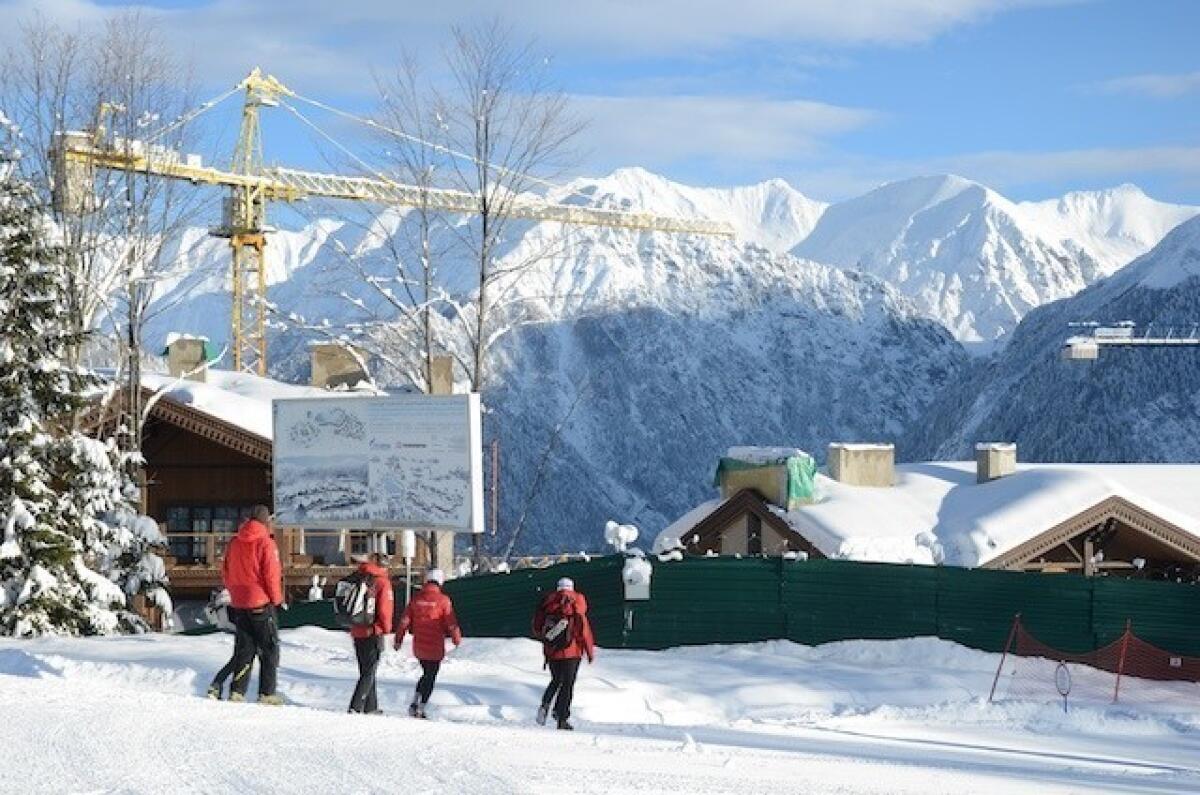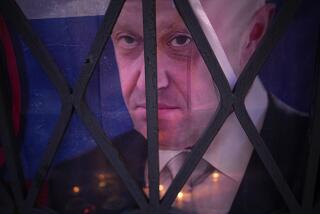With Russian Olympics a year off, a head rolls in Sochi

MOSCOW -- Exactly a year before the 2014 winter Olympics in the Russian city of Sochi, President Vladimir Putin fired a highly placed official Thursday after personally inspecting the construction process the day before.
Akhmed Bilalov, vice president of the national Olympic Committee, lost his job because of delays and overspending in the construction of the ski-jump complex Russki Gorki in Krasnaya Polyana, which is part of the “mountain cluster” that will serve as a hub of Sochi Olympic events.
The ski-jump complex was to be launched in the summer of 2011 and its construction budget was planned at $40 million. Dmitry Kozak, Russian vice premier accompanying the Putin during his Sochi trip, said that it will be completed in September, and the cost of its construction, sponsored by the state-owned Sberbank (where most Russians keep their savings), will reach about $267 million.
In televised footage from the site, a visibly upset Putin looked around and said menacingly through clenched teeth: “Good for you. Nice work.” Later, Putin said: “On the whole this work is being conducted satisfactorily. But there are problems too, the disruption of schedules on certain facilities and the issues connected with financing volumes.”
Though many Olympic construction projects are complete, including the city’s international airport, much work remains. Experts predict that the Sochi games will be the most expensive in history.
“By firing Bilalov, Putin sends a message to the entire ruling elite that he is sick and tired with the stealing, especially when it interferes more and more with key projects like the Olympics,” Kirill Kabanov, head of the National Anti-Corruption Committee, a Moscow-based think tank, said in an interview. “I have little doubt that all the Olympic facilities will be ready in time but I have no doubt their construction costs will go down in the history of Russian corruption too.”
[For the record. 11:32 a.m. Feb. 9: An earlier version of this story referred to the head of the National Anti-Corruption Committee as Kirill Babanov. His last name is Kabanov.]
The 2014 games will depend heavily on Russia’s ability to build massive new infrastructure, including roads and railways to ease passage between “coastal cluster” venues on the edge of the Black Sea, downtown Sochi and the “mountain cluster” venues about 30 miles inland. For most of the last century, Sochi has been best known as a subtropical summer resort, with seaside spas and vacation homes for the high and mighty, including Soviet strongman Josef Stalin and, more recently, Putin.
At a press conference Feb. 5 at Adler Arena in the coastal cluster area, Sochi mayor Anatoly Pakhomov reminded reporters that before Olympic preparations began, “nothing was here. This was, on one hand, extremely difficult. On the other hand, we had the chance to see the mistakes made by others and then do the best we can.”
By the end of 2012, Olympic organizers estimated, more than 70,000 workers had been enlisted in the construction effort, including many guest workers from Ukraine, Bulgaria, Uzbekistan and other neighboring countries.
Los Angeles Times staff writer Christopher Reynolds contributed to this report.
Follow us on Twitter @latimestravel
Like us on Facebook @Los Angeles Times Travel
More to Read
Sign up for The Wild
We’ll help you find the best places to hike, bike and run, as well as the perfect silent spots for meditation and yoga.
You may occasionally receive promotional content from the Los Angeles Times.






